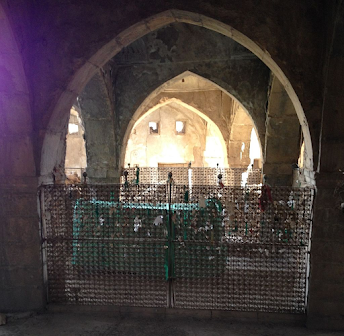Gula in Nachum?
I was perusing Nachum on Shabbat when I came across the following verse (Nachum 2:8):
"וְהֻצַּב גֻּלְּתָה הֹעֲלָתָה וְאַמְהֹתֶיהָ מְנַהֲגוֹת כְּקוֹל יוֹנִים מְתֹפְפֹת עַל לִבְבֵהֶן", which roughly translates as "And Huzzab is exiled and carried away, while her handmaidens as with the voices of doves, beating their breasts." The reason that I say "roughly" is because the meaning of the word "הצב" - "Huzzab" is unclear. Traditional commentary typically states that it may have been the name of the Assyrian queen. Malbim has a different suggestion which is that Huzzab means that she was led away in a "turtle-wagon" (עגלת צב), and that her name was גלתה - Guletah (Malbim connects this to the root גלת - GLT in Tiglat-Pileser's name. I'm not sure that particular point holds water in the Assyrian language, though).
Even before seeing Malbim, it occurred to me that Guletah may indeed be a name and may derive from the Assyrian goddess Gula. As a side-note, not long ago I came across a short lecture by Gershon Galil (whom you may have heard of by now because he's one of the people who interpreted the "cursed, cursed, cursed" tablet from Mt. Eval (Ebal)), who opined that the name Goliat came from Gula. He made a pretty solid argument in my opinion. In any case, if you couple Malbim's interpretation with my interpretation, we might get a solid argument for understanding the verse - "Queen Guletah was led away on a turtle-wagon with her handmaidens leading/driving like the voices of doves, beating their breasts".

Comments
Post a Comment